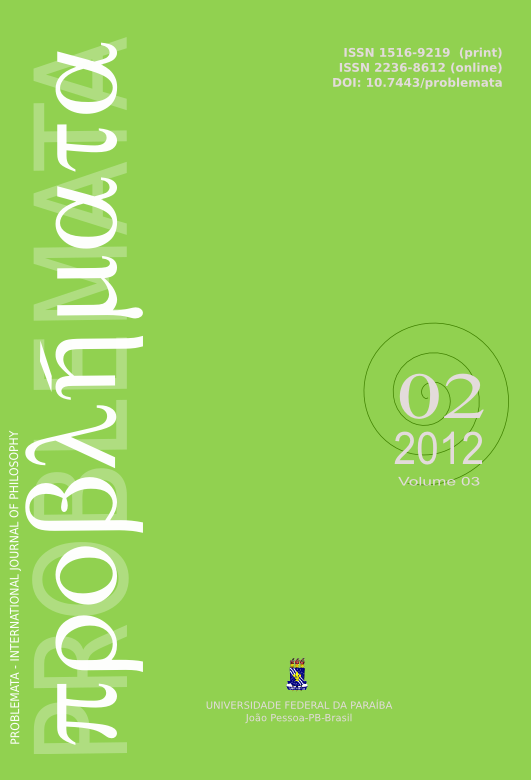PUBLIC SPHERE: CONTRIBUTIONS FOR AN UPGRADE DIAGNOSIS<a href="http://dx.doi.org/10.7443/problemata.v3i2.177199"><i> <b>[doi: 10.7443/problemata.v3i2.177199]</b></i></a>
DOI:
https://doi.org/10.7443/problemata.v3i2.14959Abstract
Fifty years after the publication of the book The Structural Transformation of the Public Sphere the historical analysis provided by Habermas follows yet a leading role, especially in studies of the processes that trigger structural changes in practices involving the formation of public opinion. The goal of this paper is to reconstruct part of the analyzes that have been developed by different theorists since the publication of the work. The aim is to contribute to the upgrade of the Habermasian thesis, specifically regarding the diagnosis about the role of media in the process of shaping public opinion. This study will be divided as follows: first, a brief review of the concepts of public opinion and published opinion offered by Habermas. Secondly, the review of the arguments that would permit rethinks the role of mass media in the process, thus conferred by Habermas, of the colonization of the public sphere. Finally, to facilitate the identification of new media for to help in the reconstruction of critical processes of process that forms the public opinion according current demands.
Downloads
Downloads
Published
Issue
Section
License
Authors who publish with this journal agree to the following terms:
- Authors retain copyright and grant the journal right of first publication with the work simultaneously licensed under a Creative Commons Attribution License that allows others to share the work with an acknowledgement of the work's authorship and initial publication in this journal.
- Authors are able to enter into separate, additional contractual arrangements for the non-exclusive distribution of the journal's published version of the work (e.g., post it to an institutional repository or publish it in a book), with an acknowledgement of its initial publication in this journal.
-
- Authors are permitted and encouraged to post their work online (e.g., in institutional repositories or on their website) prior to and during the submission process, as it can lead to productive exchanges, as well as earlier and greater citation of published work (See The Effect of Open Access).





